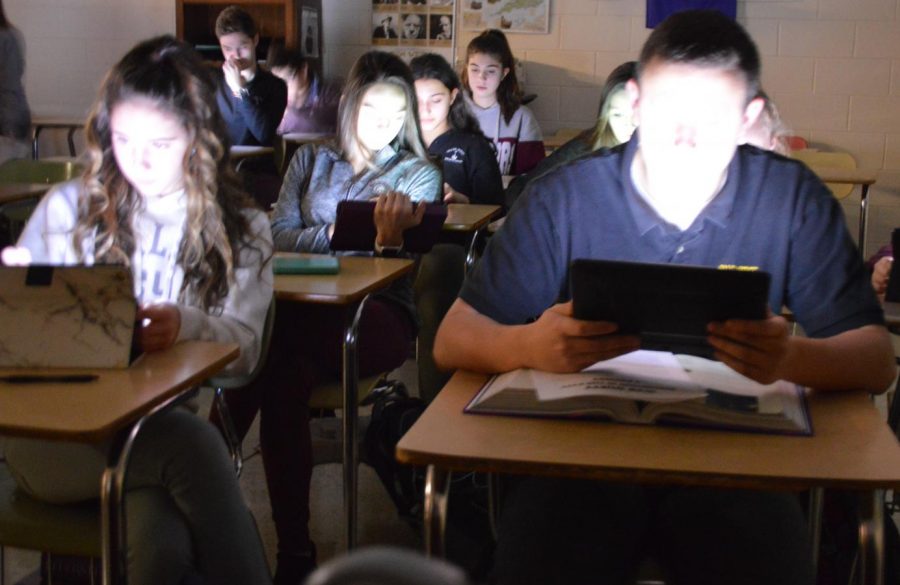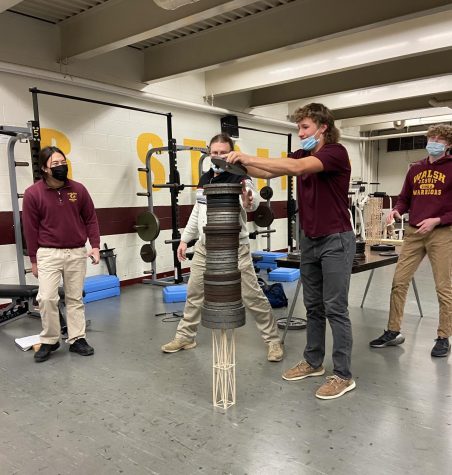It’s all about balance
Too much screen time can put mental health at risk
January 22, 2018
Time Magazine cited a study that showed “kids who spent three hours or more a day on smartphones or other electronic devices were 34% more likely to suffer at least one suicide-related outcome.”
Nowadays everyone seems to be obsessed with their smartphones. They’ve become a part of daily life, a necessity most cannot live without. Nathan Sample, a senior, admitted, “I can’t even leave the house without my phone in my pocket.”
Avoiding extensive time on electronic devices can be difficult. Sophomore Braden Ost explained how he uses an iPad for most of his classes, then goes home and does all of his homework on his computer. Students at Walsh Jesuit are mandated to have iPads for note taking and homework, and some students even take art classes requiring computer use for the entire period, which does not help with escaping that all too prevalent screen time.
Many make the argument that avoiding electronic devices slows them down and reduces productivity. However, Mitchell Bush, a senior, explained that “using a pen and paper helps with better memorization of the material.” In fact, several studies have proven Mitchell’s statement to be true. In a study conducted by Scientific American, people on average were able to recall information better when they wrote it out rather than typed it out.
But for most teens, putting down the devices is not so easy. A common conflict arises when confronted with the fear of being “the odd one out.” However, Maddie Tabone, ’18, stated that it’s not an issue for her. She noted, “I am usually on my devices for more than three hours every day,” but she also indicated that she would now limit her usage since she found out how bad excessive screen time can be.
Freshman Carra Croucher said that she isn’t worried about too much screen time because using her device lets her get away from life for a moment. It’s true that smartphones do act as a welcome distraction that teens turn to in order to provide temporary relief from anxiety and other stress factors.
As long, that is, as those “distractions” don’t last for hours and are balanced with real time relationships and accomplishments.












